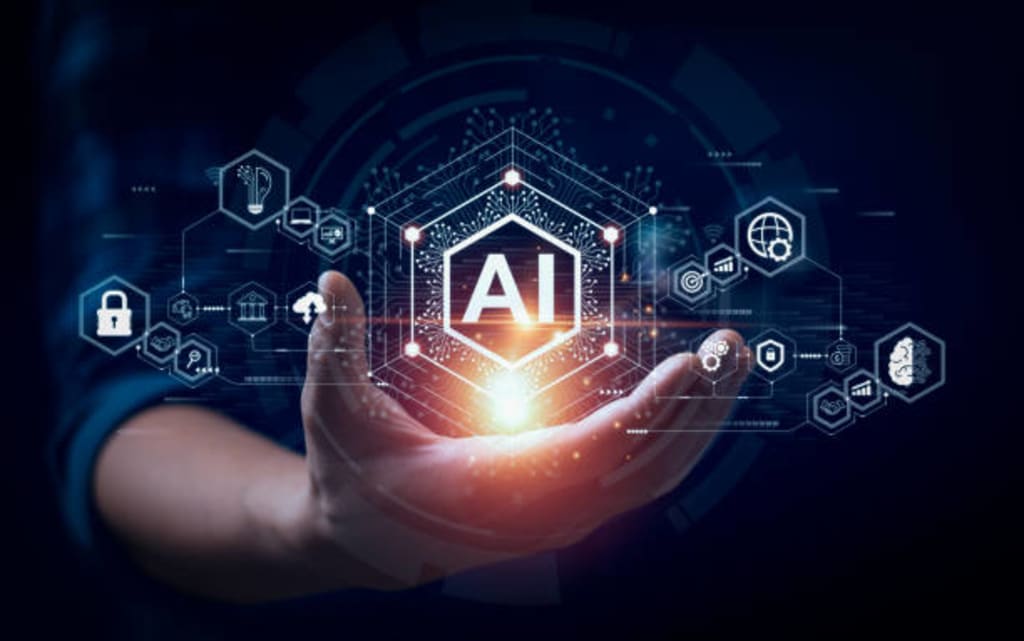The Significance of AI Technology in the Modern World
How Artificial Intelligence is Transforming Industries and Shaping Our Future

Introduction :
Artificial Intelligence (AI) technology has become an integral part of our modern world, transforming various industries and impacting our daily lives. Its importance is evident in a multitude of applications, from healthcare and finance to transportation and entertainment. AI's significance lies in its ability to process vast amounts of data, make informed decisions, and perform tasks that were once thought to be exclusive to human intelligence. In this article, we will explore the importance of AI technology in the world and the reasons behind its widespread adoption.
1. Automation and Efficiency :
AI technology has revolutionized the way businesses operate by automating repetitive and time-consuming tasks. From manufacturing and supply chain management to customer service and data analysis, AI-powered systems can perform these tasks with precision and at a much higher speed than humans. This automation not only increases efficiency but also reduces operational costs, making companies more competitive in the global market.
2. Improved Healthcare :
AI plays a pivotal role in the healthcare sector. Machine learning algorithms can analyze medical records, images, and genetic data, aiding in early disease diagnosis and personalized treatment plans. AI-powered robots and devices assist in surgeries, reducing human error and improving precision. Additionally, AI is crucial in drug discovery, helping researchers identify potential drug candidates more quickly.
3. Enhancing Education :
AI technology is making education more accessible and personalized. Intelligent tutoring systems adapt to individual students' needs, providing tailored instruction. Moreover, AI-driven tools can automate administrative tasks for educators, allowing them to focus more on teaching. Virtual reality (VR) and augmented reality (AR) applications powered by AI also enhance the learning experience.
4. Financial Services and Fraud Detection :
The financial industry relies on AI for risk assessment, fraud detection, and algorithmic trading. Machine learning models can analyze vast datasets in real-time to identify unusual patterns and potential fraudulent activities. Additionally, chatbots and virtual assistants are being employed to enhance customer service and support.
5. Smart Cities and Transportation :
AI is crucial in the development of smart cities. Traffic management systems use AI to optimize traffic flow, reduce congestion, and enhance safety. Autonomous vehicles, guided by AI, promise to revolutionize transportation, offering safer and more efficient travel options while reducing accidents caused by human error.
6. Natural Language Processing :
Natural Language Processing (NLP) is a significant subfield of AI that enables computers to understand, interpret, and generate human language. This technology powers virtual assistants like Siri and Alexa, language translation tools, and chatbots. NLP's importance lies in its ability to bridge the gap between humans and machines, making interaction with technology more user-friendly.
7. Scientific Research :
AI technology accelerates scientific discovery by sifting through vast datasets and simulations. It is used in fields like astronomy, biology, and climate science to process complex information and discover patterns that may not be apparent to human researchers. This leads to breakthroughs and advancements in various scientific domains.
8. Personalized Recommendations :
AI algorithms are behind the personalized recommendations we receive in our online experiences, whether it's movie suggestions on streaming platforms or product recommendations on e-commerce sites. By analyzing user behavior and preferences, AI can significantly improve user engagement and customer satisfaction.
9. Environmental Sustainability :
AI technology is aiding in environmental conservation efforts. Machine learning models can predict natural disasters, monitor climate change, and optimize energy consumption. Smart grids, powered by AI, can reduce energy waste and enhance the integration of renewable energy sources.
10. Accessibility and Inclusivity :
AI technologies are helping make the world more inclusive. Speech recognition systems assist individuals with disabilities, making technology more accessible to all. Additionally, AI-driven language translation tools can break down language barriers, facilitating communication across diverse communities.
11. Cyber security :
AI plays a crucial role in cyber security by identifying and responding to threats in real-time. Machine learning models can analyze network traffic, detect anomalies, and safeguard against cyber attacks. As the digital landscape evolves, AI becomes more critical in defending against increasingly sophisticated threats.
12. Data Analysis and Decision Support :
In the business world, data is king. AI technology can process massive datasets, extract valuable insights, and predict future trends. This data-driven decision support helps organizations make informed choices, adapt to changing market conditions, and stay competitive.
13. Entertainment and Content Creation :
AI-generated content is becoming increasingly prevalent in the entertainment industry. It can assist in video editing, music composition, and even the creation of art and literature. This not only streamlines content production but also opens up new creative possibilities.
14. Ethical Considerations :
As AI technology becomes more pervasive, ethical considerations are gaining importance. Issues related to bias in AI algorithms, data privacy, and the responsible use of AI are subjects of ongoing debate and regulation. Ensuring AI's ethical use is vital in reaping its benefits while avoiding potential harms.
In conclusion, AI technology has become an indispensable part of the modern world due to its vast potential to enhance efficiency, accuracy, and innovation across numerous sectors. Its trans-formative impact on healthcare, education, finance, transportation, and many other industries is evidence of its importance. AI's ability to process large datasets, learn from experience, and adapt to changing circumstances positions it as a critical tool for addressing the complex challenges of our rapidly evolving world. As AI continues to advance, it is essential to strike a balance between harnessing its potential for progress and ensuring that it is employed ethically and responsibly.





Comments
There are no comments for this story
Be the first to respond and start the conversation.